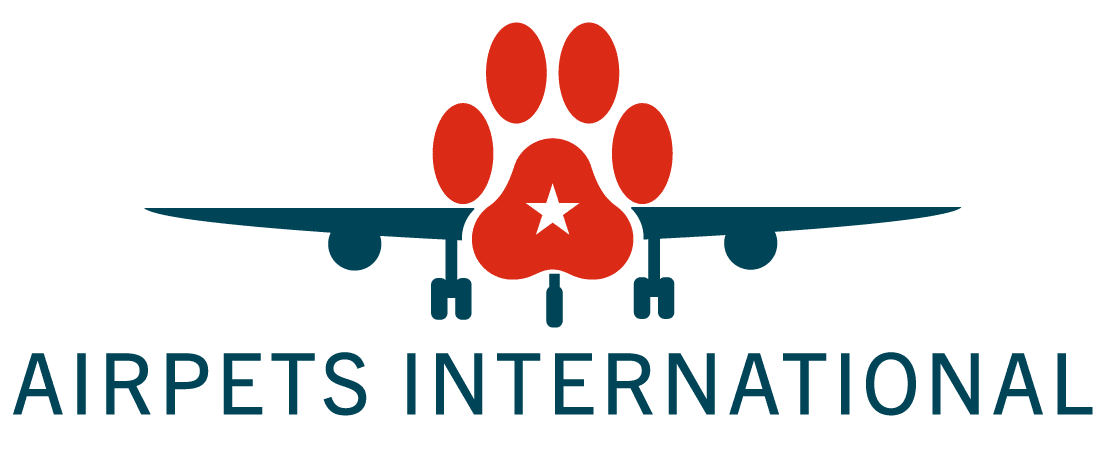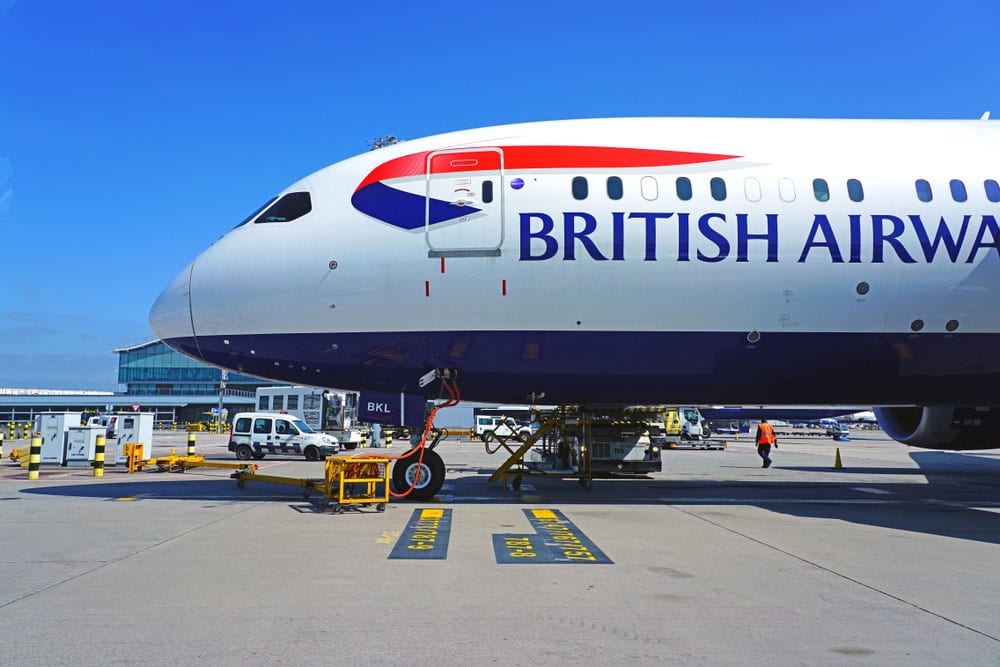Travelling your pet through British Airways? From airline regulations to country laws. Here’s a guide with all you need to know!
Forms Required
If you are entering the UK, your dog must meet the requirements of the Pet Travel Scheme offered by the UK Department for Environment, Food & Rural Affairs (DEFRA).
Notice that different rules can apply from country to country. However, the fundamental requirements from the US to the UK are:
- Microchipped: 15 Digit ISO.
- Rabies vaccination: the pet must be microchipped beforehand and at least 12 weeks old. Your pet must wait before travelling until the appropriate immunity has developed (21-30 days). The immunity wait does not apply to an annual or 3 yearly booster vaccination, provided the booster is administered before original vaccination expires.
- Health Certificate: Issued by a licensed veterinarian issued between 48 hours and 10 days prior to the flight.
- Tapeworm treatment (for dogs only): must have been given no less than 24 hours and no more than 120 hours (5 days) before you arrive. The treatment must be approved for use in the country it is being given in and contain praziquantel or an equivalent proven to be effective against the Echinococcus multilocularis tapeworm.
In-Cargo
Most pets travel through cargo – and although it may seem scary for pet parents – it is extremely safe and highly recommended pets travel via cargo.
How Safe is Cargo for Animals?
There are many regulations that must be followed by airlines placed by IATA There is a misconception about travelling via cargo but rest assured, the following rules/regulations airlines typically follow:
- Feeding and Watering: According to the USDA, dogs 16 weeks of age or more must be offered food at least once every 24 hours. Puppies less than 16 weeks of age must be offered food at least once every 12 hours. Ensure your pet is fed no more than 2 hours before check-in – a water bowl is usually attached to the crate door and filled before the flight and during transit stopovers. All dogs are required to have water in their crates.
- Regular Care: pets are observed regularly, this includes when they are in holding and being loaded/unloaded. If there is a layover of more than 4 hours, they are taken out of their crates and provided with a comfort stop where they are put in a private run and given fresh food and water. Cats are given a fresh litter box and dogs are walked. If a pet is injured, ill, or in physical distress, they are provided veterinary care.
- Avoiding Contact with Other Pets: There are regulations that prevent pets from coming in direct contact with other pets during air travel. Pets do not usually travel in the same kennel, even if they come from the same family.
- Handling Kennels: special care is taken when it comes to transporting live animals. Kennels are handled in a manner that protects the animal, they are moved quickly between holding areas and planes, they are not to be tossed, dropped, or needlessly tilted, or stacked in a manner that can cause the kennel to fall. They are also protected from any external elements.
- Conveyer Belts: An attendant is present at each end of the belt when a kennel is being loaded and unloaded from planes. Kennels are not placed on baggage claim conveyer belts.
- Temperature: Pets and their kennels are protected from exposure to extreme temperatures. Pets are not exposed to air temperatures above 85F (29.5 C) or below 45 F (7.2 C) for more than 4 hours. The animal holding areas must meet these temperatures or the animal will be denied transport.
- Holding Area Conditions: Ventilation is provided in any animal holding area by means of windows, doors, vents, or air conditioning. Protection is provided to keep the pet dry during rain or snow.
Animals are placed in cargo with baggage but there are nets separating crates and luggage to ensure the luggage does not fall on the crates.
Kennel Requirements
To ensure the safety and comfort of your pet, the IATA enforces some requirements for a pet to be able to travel. If the kennel is not compliant, your pet can be denied transport.
- Kennel Size: make sure the kennel is the appropriate size for your pet.
- Construction and Quality: the kennel should be hard-sided with secure fasteners, have a secure door that is easy to open (without requiring additional tools), the exterior handles should be sturdy to prevent tilting and unnecessary contact with the animal, must have adequate ventilation with openings on three sides and the door, must be free of toxic or harmful materials (treatments, paint or preservatives).
- Cleanliness and Safety: the kennel must be clean and sanitized, leak proof (with an unused litter pad or collection tray), interior must be free of shrap points or edges, designed for easy exit in case of an emergency, must be designed to prevent any part of the animal from protruding outside the kennel.
- Watering and Feeding Containers: Food and water dishes are to be attached to the inside of the kennel door.
- Labeling: Kennels must display labels with the words “Live Animal” in 1-inch letters on the top and at least one side of the kennel as well as display upright arrows showing the kennel’s upright position.
Check-In
For an easy check-in process, ensure:
- Confirm your airport’s cargo terminal service hours and location.
- For international flights, check-in 4 hours before the flight. For domestic flights, check-in 2 hours before the flight.
- Ensure your pet is fed no more than 6 hours before the flight.
- Make sure you have all your required documentation. This usually includes a health certificate, rabies vaccination, and the airway bill. Additional documents may be required in some cases.
In-Cabin Pet Policy
No domestic pet can travel in-cabin – the only exception being service dogs.
Emotional Support Dogs
British Airways does not accept emotional support dogs for travel in-cabin on any British Airways operated flights. They must travel as a domestic pet.
Service Dogs
A service dog may travel free of charge in in-cabin, but your dog must:
- Be trained to assist with a disability or medical condition by way of specific tasks and assessed as suitable for those purposes by an accredited member of Assistance Dogs International (ADI) or the International Guide Dog Federation (IGDF) to comply with the requirements of the UK Government, specifically the Animal and Plant Health Agency (APHA). For direct flights to and from the United States of America, completed US Department of Transport Service Animal forms are required.
- Be individually trained in specific tasks to assist you with your disability or medical condition.
- Have had behavioral training and show appropriate behavior in public and onboard an aircraft.
- Wear an identifying jacket/harness.
- Always remain under your control.
British Airways will ask you to send documents confirming that your dog has completed service dog training. If your dog does not meet these criteria, it will need to travel as a domestic pet.
Booking Travel for Service Dog
It is not possible to book a service dog online as the airline asks for additional information to confirm the dog for travel. You will need to book your dog at the same time you book your own flight and at least 48 hours (about 2 days) prior to your travel date.
If you have already booked your flight and wish to add your service dog, you will need to contact British Airways to add your dog at least 48 hours prior to the travel date.
Travelling to the UK
There are entry regulations that require you to contact and receive approval from the UK animal reception center at least 72 hours (about 3 days) before your flight. You will be asked to show a letter of approval before boarding your flight to the UK. Failure to comply with this requirement means you will be denied entry to the UK.
Travelling to or from the US
If you are travelling to or from the United States of America, you must:
- Complete a U.S. DoT Service Animal Air Travel Form.
- For flights over 8 hours in duration, you must complete a U.S. DoT Relief Attestation Form. This confirms your dog will not need to relieve itself during the flight or detail how the dog will relieve itself in a sanitary way.
These documents must be emailed to British Airways’ accessibility team at least 48 hours before the flight. The accessibility team also will review documents on training.
If you fail to show any of the documents on time or your dog has not had the appropriate training – the airline will not permit your dog to travel in-cabin.
Banned Breeds
Keep in mind that certain restrictions/laws can be placed on your pet/pet breed. These are the current dog breeds banned to enter the UK:
- XL Bully
- Pit Bull Terrier
- Japanese Tosa
- Dogo Argentino
- Fila Brasileiro
Working With Airpets International
Pet travel is by no means easy to plan and coordinate. As you can see, there are many moving components to it. If you are looking to travel to the UK using British Airways – Airpets International is happy to assist and answer any questions or concerns you may have. Just go ahead and give us a call, email, or fill out our “get an estimate” form to make the stress of pet travel easier for you!
Contact Us
Contact one of our specialists or get an estimate to start your journey!
Visit us for more: www.airpetsinternational.com
Call us for more information: 866-738-7447
Email us: info@airpetsintl.com


